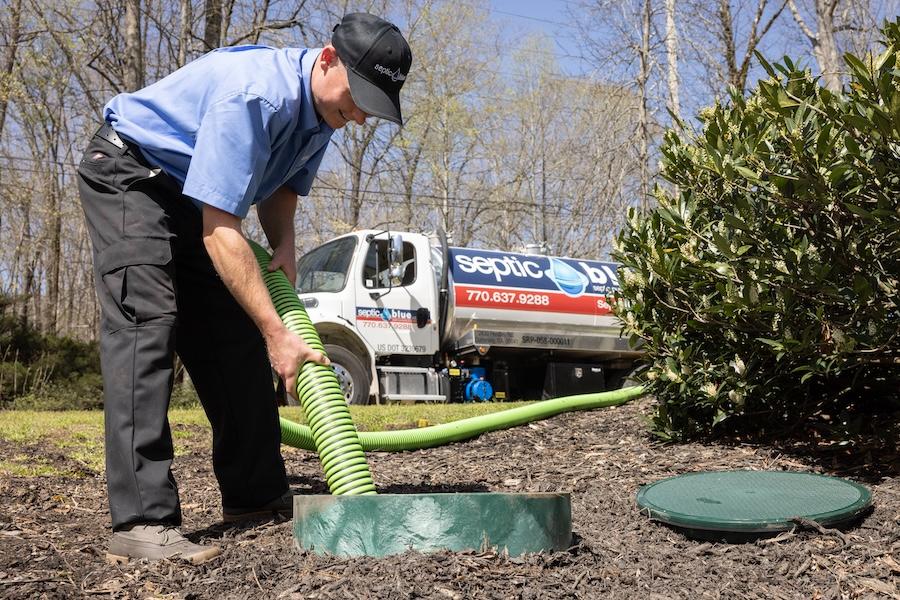How to Prepare Your Septic Tank for Pumping
Read More
Schedule Online
919-446-4099

Sep 12, 2024
Whether you’re a homeowner who relies on a septic system for wastewater treatment or are looking to switch from a sewer system to a septic system, it’s important to understand how septic tanks filter wastewater.
Understanding how septic tanks work is essential for proper maintenance and compliance. Septic Blue of Raleigh is a professional septic company in Raleigh that provides a full range of top-quality services. As experienced septic technicians, we understand how different types of septic systems work inside and out. In this article, we will explain how septic tanks filter wastewater.
A septic tank is a watertight container buried underground that processes and purifies household waste. It holds wastewater in the container, retains solid materials, gets rid of pollutants, and then releases effluent into the drain field. The retained solids are removed from the tank through a process known as septic tank pumping. The solids should be removed when the sludge level is between one-third and a half of the tank’s total depth.
Wastewater from your home flows into the septic tank through the inlet pipe located at the bottom of the tank.
As the wastewater sits in the tank, the heavier solids settle to the bottom, forming sludge. The lighter liquid portion, known as effluent, rises to the top and is eventually released into the drain field for further filtration. Let’s look at the three layers in a septic tank in greater detail:
This layer is composed of lighter materials, such as oils, fats, and grease, that float to the surface of the wastewater. The scum layer acts as a barrier, preventing these materials from entering the drain field and potentially clogging it. The effluent filter, which is installed in the outlet, also helps to block solid matter from clogging the outlet pipe and drain field. Regular septic tank cleaning and pumping are essential to remove the scum layer and prevent it from overflowing into the drain field.
The effluent layer is the liquid portion of the wastewater that lies between the scum and sludge layers. As the effluent passes through the septic tank, it undergoes a natural treatment process involving anaerobic bacteria. These bacteria break down organic matter to reduce its pollutant load. This is important to protect water quality and prevent environmental contamination. The treated effluent is eventually released into the drainfield or leach field for further filtration by the soil.
This layer consists of heavy solid waste, bacteria, and other organic matter that collect at the bottom of the septic tank. Bacteria in the sludge layer break down organic matter in an oxygen-free environment to produce gas and a slurry-like substance. Regular septic tank pumping is necessary to remove the sludge layer and prevent it from filling up the tank.
If too much sludge accumulates in the tank, it can cause a number of problems, including foul odors, backups, and slow drains. It’s advisable to contact a professional septic company to pump out the solids before they interfere with proper functioning.
When you’re in need of dependable septic service, it’s best to work with a reputable service provider. Here at Septic Blue of Raleigh, we offer high-quality septic services at friendly rates. Whether you’re in need of septic tank repair or it’s time to schedule a full inspection, our septic technicians are ready to offer reliable assistance.